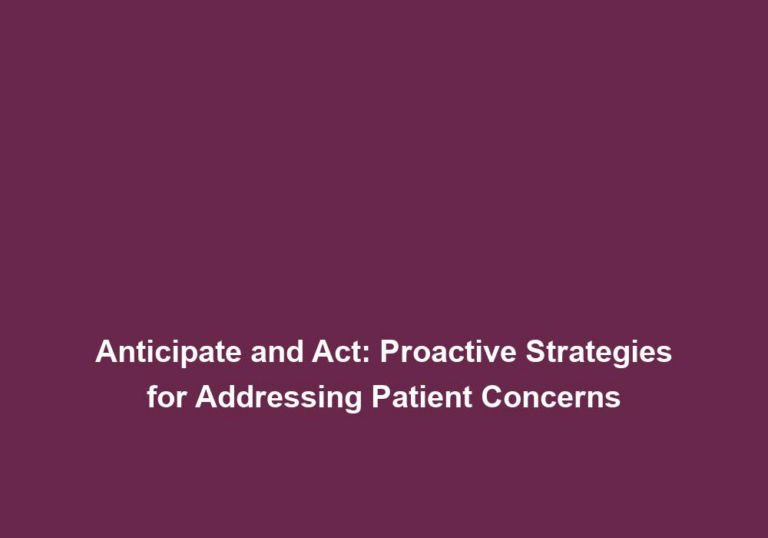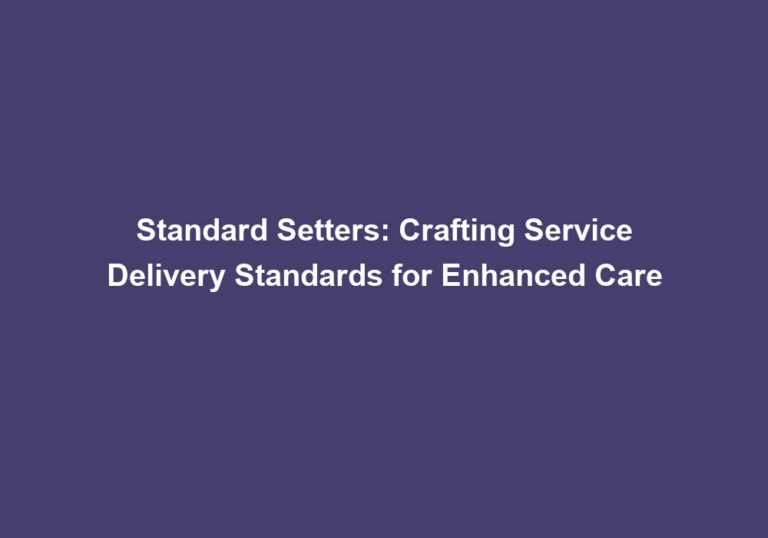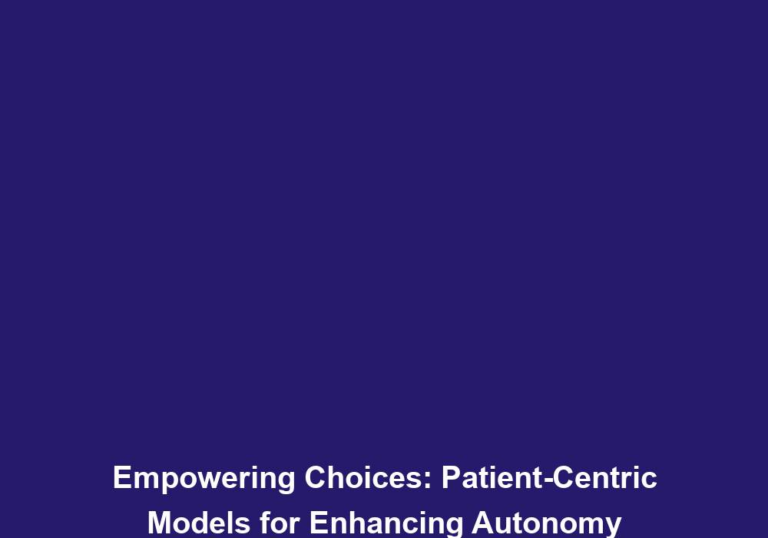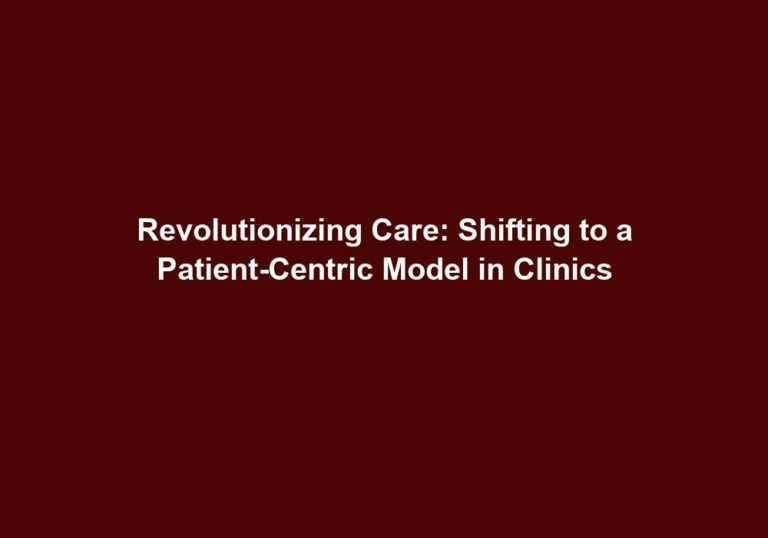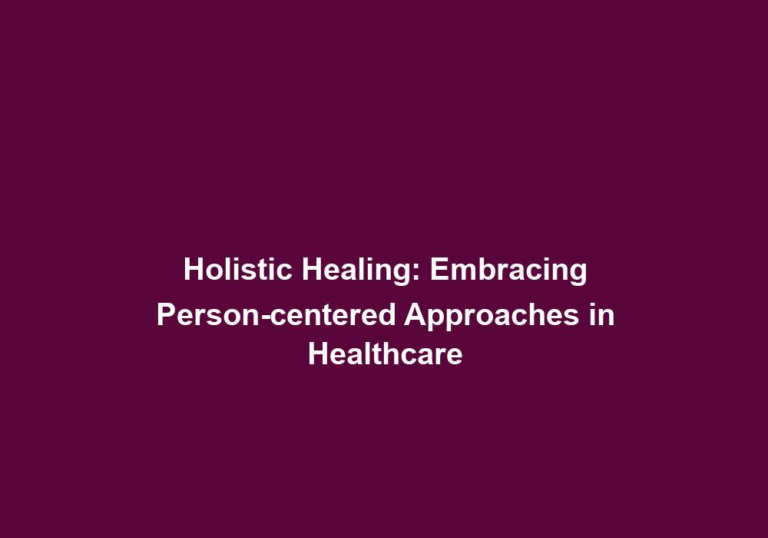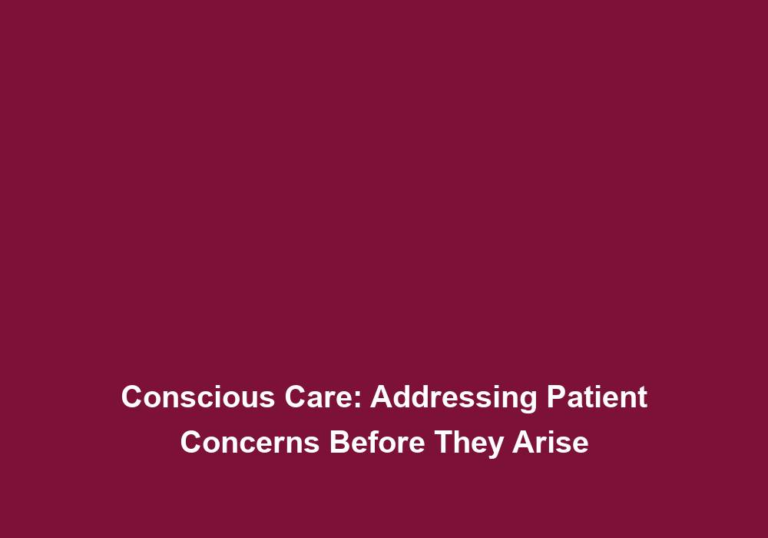Beyond Care: Fostering Trust and Building Patient Loyalty in Medical Practices
In today’s rapidly evolving healthcare landscape, medical practices face a myriad of challenges when it comes to attracting and retaining patients. While providing exceptional care is undoubtedly essential, it is equally crucial for medical practices to focus on fostering trust and building patient loyalty. By going beyond the traditional realms of healthcare, medical practices can establish long-lasting relationships with their patients and ensure their continued satisfaction. In this article, we will explore some effective strategies that can help medical practices enhance trust and cultivate patient loyalty.
Importance of Trust in Medical Practices
Trust forms the foundation of any successful patient-physician relationship. When patients trust their healthcare providers, they feel more comfortable discussing their health concerns, seeking advice, and following recommended treatment plans. Trust also plays a vital role in patient satisfaction and overall well-being. Patients who trust their medical practitioners are more likely to adhere to their prescribed medications, attend regular check-ups, and engage in healthier lifestyle choices.
To establish trust in medical practices, effective communication and empathy are paramount. Physicians and staff should adopt a patient-centric approach, focusing on active listening and clear, concise explanations of medical conditions and treatment plans. By taking the time to listen to patients’ concerns and addressing them empathetically, healthcare providers can instill confidence and trust.
Key Strategies for Effective Communication:
- Active Listening: Encourage patients to express their concerns, ask questions, and share their thoughts. Listen attentively, show genuine interest, and maintain eye contact to establish a sense of connection. This shows patients that their opinions and experiences are valued, fostering a stronger sense of trust.
- Empathy: Demonstrate understanding and empathy towards patients’ emotional and physical well-being. Acknowledge their fears, anxieties, and any challenges they might face during their healthcare journey. By showing empathy, healthcare providers can create a safe and supportive environment where patients feel understood and cared for.
- Clear Explanations: Use plain language to explain medical procedures, diagnoses, and treatment options. Avoid jargon and ensure patients understand the information provided. Clear explanations help patients make informed decisions about their healthcare, increasing their trust in the medical practice.
- Encourage Questions: Create a welcoming environment where patients feel comfortable asking questions at any stage of their treatment. Respond patiently and comprehensively, addressing their concerns without hesitation. This open dialogue builds trust and allows patients to actively participate in their own care.
Building Patient Loyalty Through Personalized Care
While trust lays the foundation, patient loyalty is the ultimate goal for any medical practice. A loyal patient not only continues seeking care from the same practice but also becomes an advocate, recommending the services to friends and family. To build patient loyalty, medical practices should prioritize personalized care that goes beyond the clinical aspects.
Strategies for Personalized Care:
- Individualized Treatment Plans: Tailor treatment plans to each patient’s specific needs, considering their medical history, lifestyle, and preferences. Personalizing care demonstrates a commitment to the patient’s well-being and fosters a sense of trust and loyalty. By understanding the unique needs of each patient, medical practices can provide tailored solutions that address their specific concerns.
- Consistent Staff Interactions: Encourage continuity in patient-staff relationships by assigning dedicated staff members to individual patients whenever possible. This allows patients to build rapport and feel more comfortable during their visits. Consistent interactions with familiar staff members create a personalized experience that enhances patient satisfaction and loyalty.
- Efficient Appointment Management: Minimize waiting times and streamline appointment scheduling to enhance patient satisfaction. Efficient appointment management shows respect for patients’ time and improves their overall experience. By valuing their time, medical practices can strengthen the bond with patients and encourage their loyalty.
- Post-Treatment Follow-ups: Maintain regular communication with patients even after their treatment concludes. Follow-up calls or emails to check on their progress and well-being can make patients feel valued and cared for. These follow-ups demonstrate a commitment to the patient’s ongoing health and reinforce the trust and loyalty they have in the medical practice.
Embracing Technology for Enhanced Patient Experience
In today’s digital age, leveraging technology can significantly contribute to the patient experience and help build loyalty. The integration of digital tools into medical practices not only streamlines administrative tasks but also enhances patient engagement and convenience.
Utilizing Technology to Improve Patient Experience:
- Online Appointment Scheduling: Provide patients with the convenience of booking appointments online, eliminating the need for lengthy phone calls and reducing wait times. Online appointment scheduling empowers patients to take control of their healthcare journey and improves their overall experience.
- Telemedicine Services: Offer virtual consultations and follow-ups through video conferencing, allowing patients to access healthcare remotely. This can be particularly beneficial for patients with mobility constraints or residing in remote areas. Telemedicine services provide convenience and accessibility, leading to increased patient satisfaction and loyalty.
- Patient Portals: Implement secure online portals where patients can access their medical records, test results, and communicate with their healthcare providers. This fosters transparency and empowers patients to take an active role in their healthcare management. Patient portals enhance patient engagement, trust, and loyalty by providing easy access to important information.
- Healthcare Apps: Develop or recommend mobile applications that educate patients about their conditions, offer medication reminders, and provide access to reliable health information. Such apps can strengthen the patient-provider relationship and promote better health outcomes. Healthcare apps empower patients to actively manage their health and strengthen their connection with the medical practice.
Cultivating Trust and Loyalty Beyond the Practice Walls
Creating a sense of community and social responsibility can extend medical practices’ influence beyond their immediate patient population. Engaging in outreach programs, supporting local initiatives, and promoting health education initiatives can enhance a medical practice’s reputation and foster trust in the wider community.
Strategies for Community Engagement:
- Health Education Programs: Organize workshops, seminars, or webinars to educate the community on prevalent health issues, preventive measures, and healthy lifestyle choices. This positions the medical practice as a trusted source of information and care. By actively participating in health education initiatives, medical practices build trust and establish themselves as community leaders.
- Partnerships with Community Organizations: Collaborate with local organizations, schools, or community centers to support health-focused initiatives or sponsor events. Active involvement in the community builds trust and strengthens ties with potential patients. By partnering with community organizations, medical practices demonstrate their commitment to the overall well-being of the community.
- Social Media Engagement: Utilize social media platforms to disseminate health-related information, engage with the community, and share success stories. This allows medical practices to connect with a broader audience and establish themselves as industry thought leaders. Social media engagement promotes trust, loyalty, and brand recognition within the community.
By adopting these strategies and going beyond conventional healthcare practices, medical practices can foster trust, build patient loyalty, and differentiate themselves from competitors. Remember, sustaining trust and loyalty is an ongoing process that requires consistent effort, open communication, and a genuine commitment to patient well-being.


